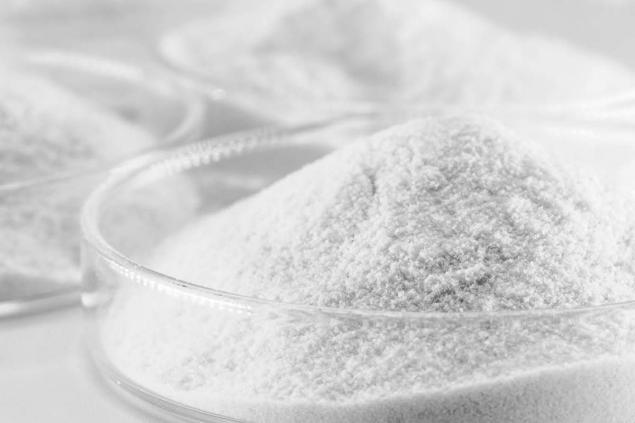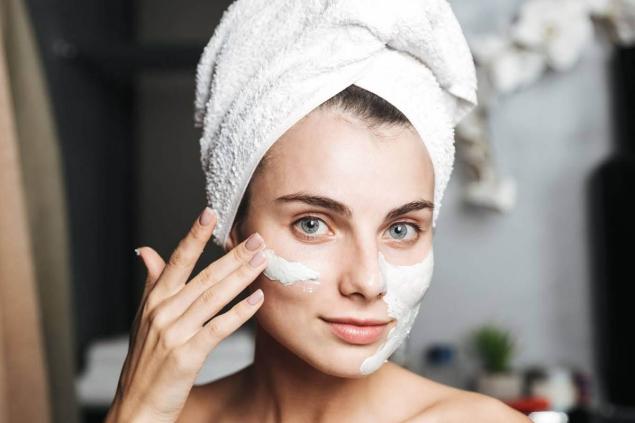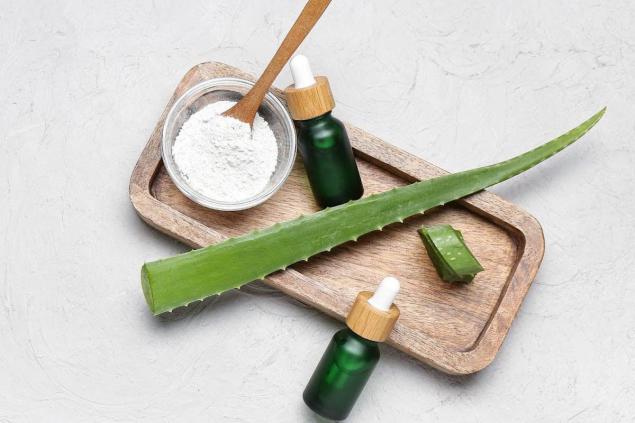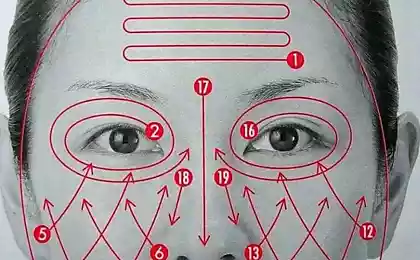308
My daughter-in-law gave me a newfangled enzyme powder, I didn’t look so young even 10 years ago
Enzyme cleansing powders are an innovative product that is rapidly gaining popularity in the skin care industry. Their action is based on enzymes - protein molecules that delicately break down dead cells, leaving the skin smooth, radiant and youthful. Enzyme powders provide deep cleansing and rejuvenation of the skin.
Enzyme powder for washing
Benefits of enzyme powders Gentle and deep cleansing: enzymes act without irritation, so they are suitable even for sensitive skin. They penetrate the pores, removing impurities, sebum and makeup residues.
Powerful exfoliation: Enzymes remove dead cells for smoother, more radiant skin.
Anti-aging effect: enzymes stimulate collagen production, which makes the skin firmer and more elastic.
Fight acne: Some enzymes have antibacterial properties, which helps in the fight against acne.

Preparation for other treatments: Enzyme powders can be used to prepare the skin for chemical peels, mesotherapy or other treatments.
However, like any other product, enzyme powder may not be effective or even cause harm if used incorrectly. What nuances should you pay attention to when using enzyme powder?
Mistakes when using enzyme powders Too frequent use: enzyme powders are not recommended to be used more than 2-3 times a week.
Incorrect application: Enzymes work best on damp skin, not wet skin.
Firm massage: Enzymes act delicately, so there is no need to massage your face harshly.
Incomplete rinsing: it is necessary to thoroughly rinse off the powder with warm water so that no particles remain.
Use with aggressive products: it is not recommended to use enzyme powders simultaneously with scrubs or peels.
Neglecting moisturizing: after using enzyme powder, it is recommended to apply a moisturizer.

Enzyme powders can be used as a standalone product or in combination with other procedures. There are several types of enzymes, each of which has its own characteristics. Professional cosmetologists will select powder with the optimal composition for you. They will take into account your skin type, its sensitivity, the presence of problems (acne, rosacea) and other factors when choosing enzyme powder and developing a protocol for its use.
Types of enzymes used in enzyme powders Papain: obtained from papaya, has a mild effect, suitable for sensitive skin.
Bromelain: Derived from pineapple, has an anti-inflammatory effect and fights acne.
Ficin: obtained from figs, has an antioxidant effect, slows down skin aging.
Subtilisin: obtained from bacteria, has a powerful cleansing effect, suitable for oily and problematic skin.
Trypsin: obtained from animal sources, has a keratolytic effect, fights hyperpigmentation.

It is important to note that trypsin can cause allergic reactions and should be used with caution. Alternative sources of trypsin are possible: plants such as papaya and pineapple contain enzymes similar to trypsin; some bacteria can produce trypsin. These alternative sources of trypsin are still being researched, but they may be safer and more ethical than animal-derived trypsin.
How to choose enzyme powder
How to use enzyme powder

Enzyme cleansing powder can also be used as an exfoliant or as a mask. With this application, the exposure time of the enzyme powder can vary from 5 to 20 minutes, depending on the skin type and the manufacturer’s recommendations.
After using enzyme powder as a mask, it is also recommended to apply moisturizer.
Enzyme powders are a great skin care product that can make your skin smoother, more radiant, and more youthful. However, it is important to use the powder correctly to get maximum results without errors or side effects. Remember that enzyme powders are just one step towards beautiful and healthy skin. Don't forget about other important care steps such as cleansing, moisturizing and sun protection.
Enzyme powder for washing

Benefits of enzyme powders Gentle and deep cleansing: enzymes act without irritation, so they are suitable even for sensitive skin. They penetrate the pores, removing impurities, sebum and makeup residues.
Powerful exfoliation: Enzymes remove dead cells for smoother, more radiant skin.
Anti-aging effect: enzymes stimulate collagen production, which makes the skin firmer and more elastic.
Fight acne: Some enzymes have antibacterial properties, which helps in the fight against acne.

Preparation for other treatments: Enzyme powders can be used to prepare the skin for chemical peels, mesotherapy or other treatments.
However, like any other product, enzyme powder may not be effective or even cause harm if used incorrectly. What nuances should you pay attention to when using enzyme powder?
Mistakes when using enzyme powders Too frequent use: enzyme powders are not recommended to be used more than 2-3 times a week.
Incorrect application: Enzymes work best on damp skin, not wet skin.
Firm massage: Enzymes act delicately, so there is no need to massage your face harshly.
Incomplete rinsing: it is necessary to thoroughly rinse off the powder with warm water so that no particles remain.
Use with aggressive products: it is not recommended to use enzyme powders simultaneously with scrubs or peels.
Neglecting moisturizing: after using enzyme powder, it is recommended to apply a moisturizer.

Enzyme powders can be used as a standalone product or in combination with other procedures. There are several types of enzymes, each of which has its own characteristics. Professional cosmetologists will select powder with the optimal composition for you. They will take into account your skin type, its sensitivity, the presence of problems (acne, rosacea) and other factors when choosing enzyme powder and developing a protocol for its use.
Types of enzymes used in enzyme powders Papain: obtained from papaya, has a mild effect, suitable for sensitive skin.
Bromelain: Derived from pineapple, has an anti-inflammatory effect and fights acne.
Ficin: obtained from figs, has an antioxidant effect, slows down skin aging.
Subtilisin: obtained from bacteria, has a powerful cleansing effect, suitable for oily and problematic skin.
Trypsin: obtained from animal sources, has a keratolytic effect, fights hyperpigmentation.

It is important to note that trypsin can cause allergic reactions and should be used with caution. Alternative sources of trypsin are possible: plants such as papaya and pineapple contain enzymes similar to trypsin; some bacteria can produce trypsin. These alternative sources of trypsin are still being researched, but they may be safer and more ethical than animal-derived trypsin.
How to choose enzyme powder
- Choose powders with enzymes that suit your needs and skin type.
- Pay attention to the composition of the powder: it should not contain aggressive components.
- Read reviews about the powder before purchasing.
- Consult your cosmetologist.
How to use enzyme powder
- Before using the powder, it is recommended to test for an allergic reaction.
- Moisten your neck and face with water.
- Wet your hands with warm water.
- Sprinkle a little powder on your palms.
- Add a drop of water and foam the powder.
- Apply powder to damp skin on neck and face, avoiding the eye area.
- Lightly massage your skin for 1-2 minutes.
- Rinse off the powder with warm water.
- After using enzyme powder, it is recommended to apply moisturizer.
- Use powder 1-2 times a week.

Enzyme cleansing powder can also be used as an exfoliant or as a mask. With this application, the exposure time of the enzyme powder can vary from 5 to 20 minutes, depending on the skin type and the manufacturer’s recommendations.
After using enzyme powder as a mask, it is also recommended to apply moisturizer.
Enzyme powders are a great skin care product that can make your skin smoother, more radiant, and more youthful. However, it is important to use the powder correctly to get maximum results without errors or side effects. Remember that enzyme powders are just one step towards beautiful and healthy skin. Don't forget about other important care steps such as cleansing, moisturizing and sun protection.
KIDS CLOTHING TRENDS FOR 2024 YOU SHOULD KNOW ABOUT
There is no need to take revenge on your enemies; it is enough to cut the branch of one plant to return all the evil to them.























